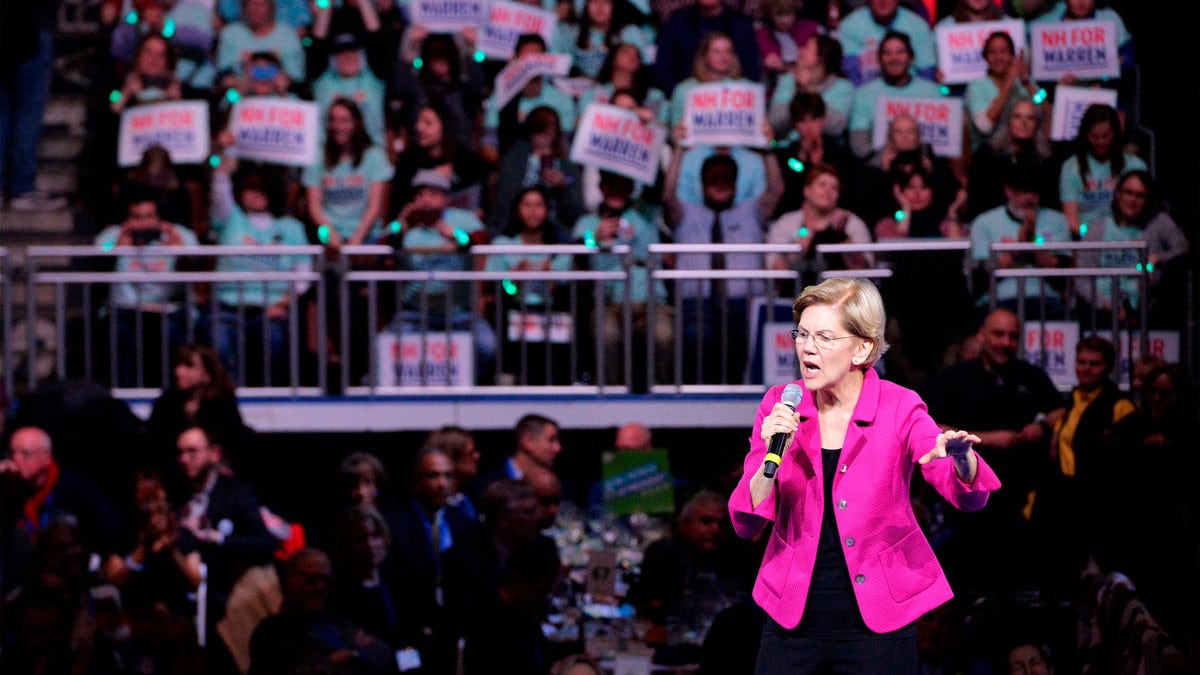Elections
Getty
Warren Absorbs All the Downsides of Being a Female Candidate With Little of the History-Making Chatter
WALKING ON BROKEN GLASS
The candidate is trying to break the last remaining political glass ceiling. So how come women voters are so nervous about it?

Trending Now





